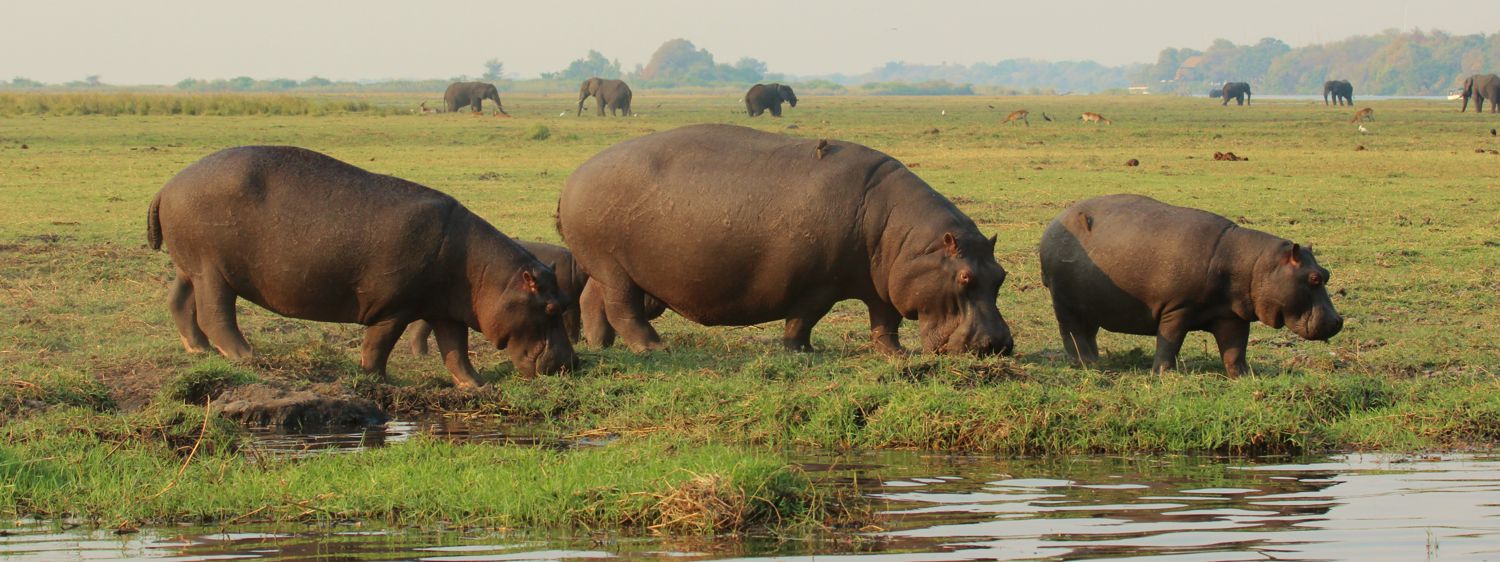The hippopotamus (Hippopotamus amphibius), or more commonly known as Hippo, is one of Africa’s most iconic and fascinating animals. Despite its somewhat comical appearance, the hippo is a powerful and territorial mammal, perfectly adapted to life in and around water.
Physical Description
Hippos are the third-largest land mammals after elephants and white rhinos. Adults can weigh between 1,500 and 3,200 kilograms. They have barrel-shaped bodies, short legs, and enormous mouths with large tusk-like canines. Their skin is thick and nearly hairless, secreting a natural pinkish fluid that acts as a sunscreen and antibacterial layer.
Behaviour
Although they spend most of their day submerged in rivers and lakes to keep cool, hippos are not good swimmers. Instead, they move by pushing off the bottom. At dusk, they leave the water to graze on grasses, often traveling several kilometers in a single night. Hippos are highly territorial in water, especially males, and can be extremely aggressive if threatened. Surprisingly, they are considered one of the most dangerous animals in Africa due to their unpredictable nature and powerful bite.
Habitat
Hippos are semi-aquatic and require both water and grassland to thrive. They inhabit slow-moving rivers, lakes, and swamps across sub-Saharan Africa. The water provides a refuge from the heat and predators, while the surrounding savannahs and floodplains offer ample grazing opportunities.
Distribution
Today, hippos are found in many parts of East, Central, and Southern Africa, including countries like Botswana, Zambia, Tanzania, Uganda, Kenya, and Namibia. Some of the best places to observe them in the wild include the Okavango Delta, the Luangwa River, and the Mara River during the Great Migration.



